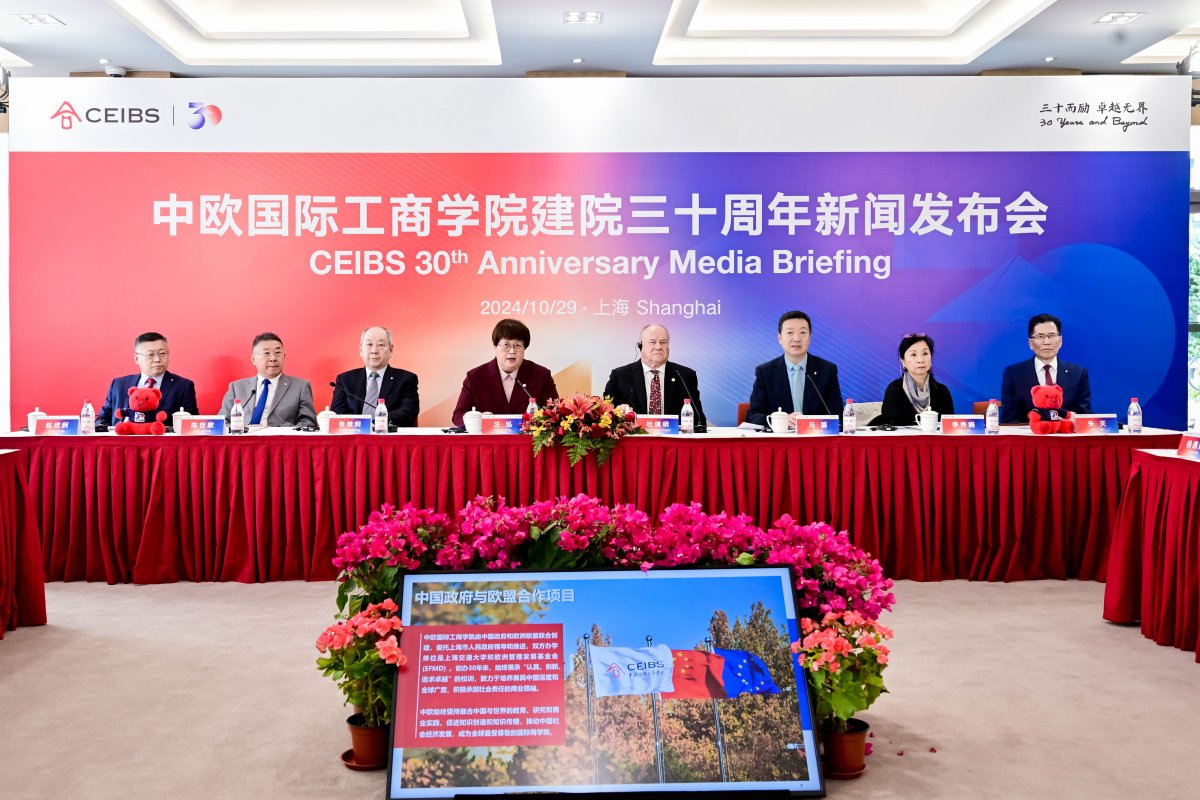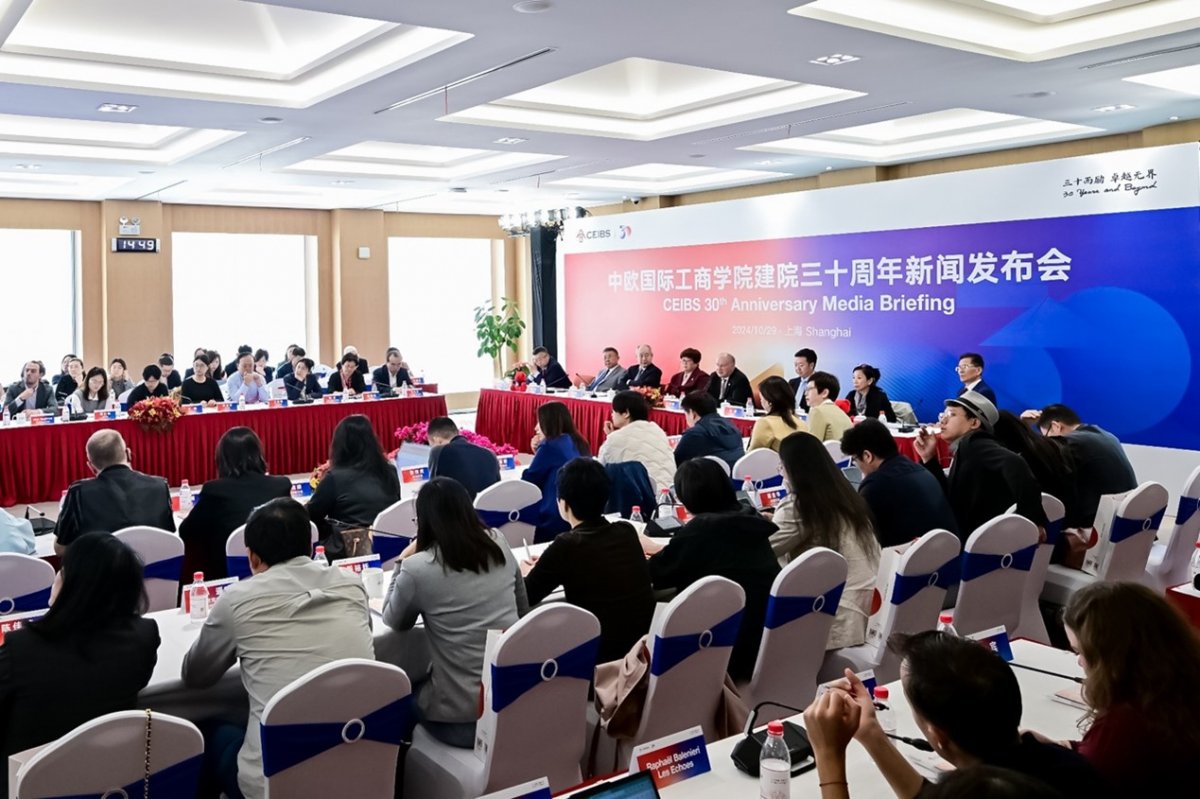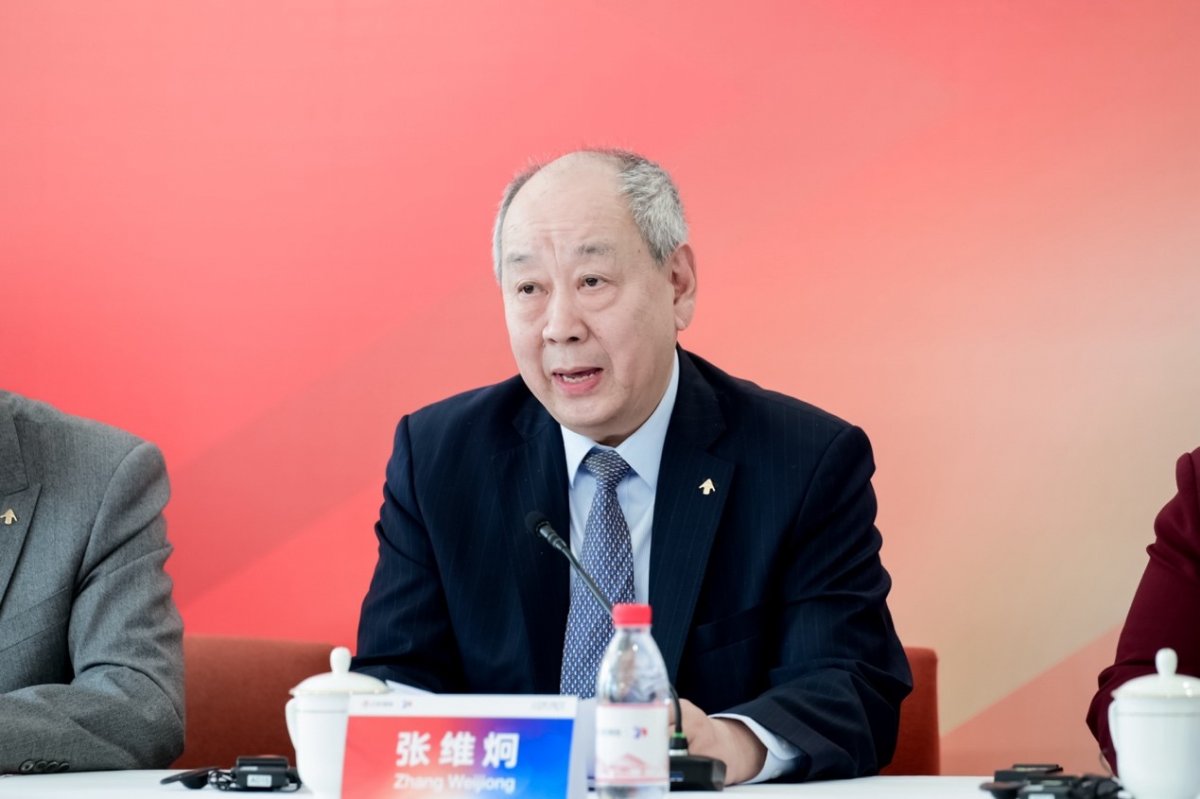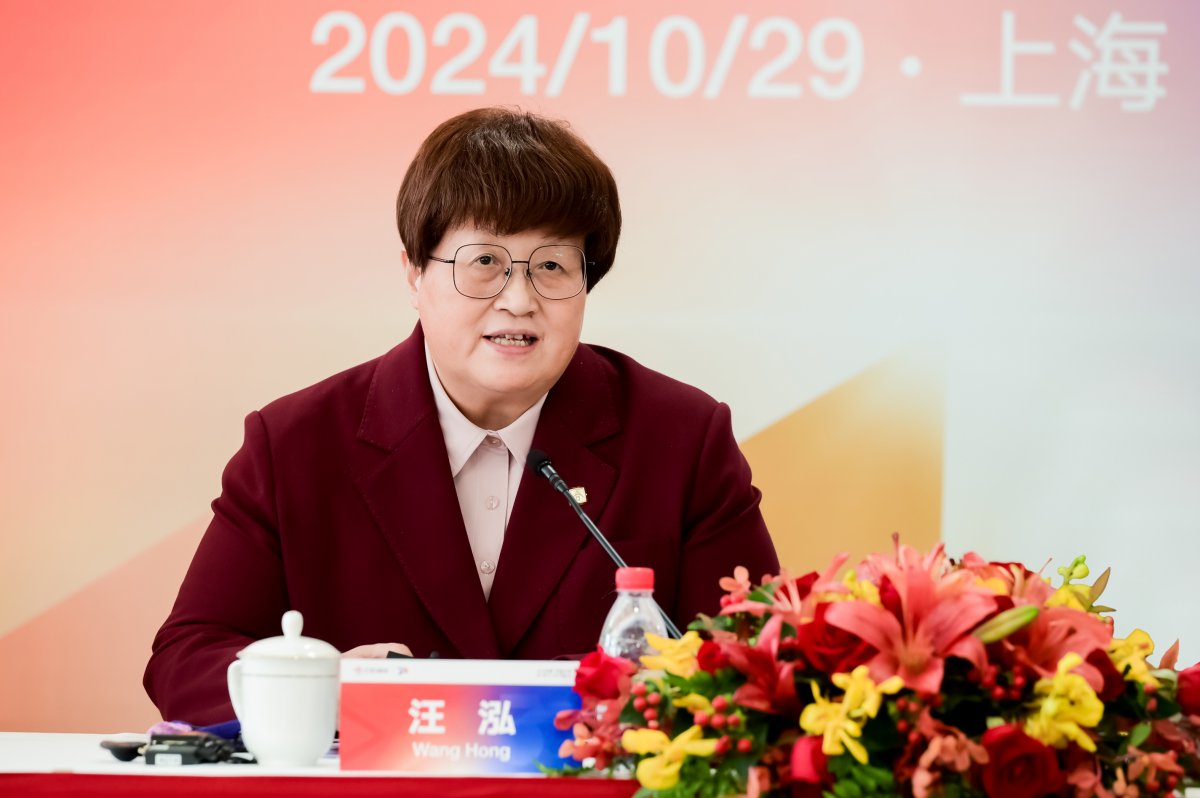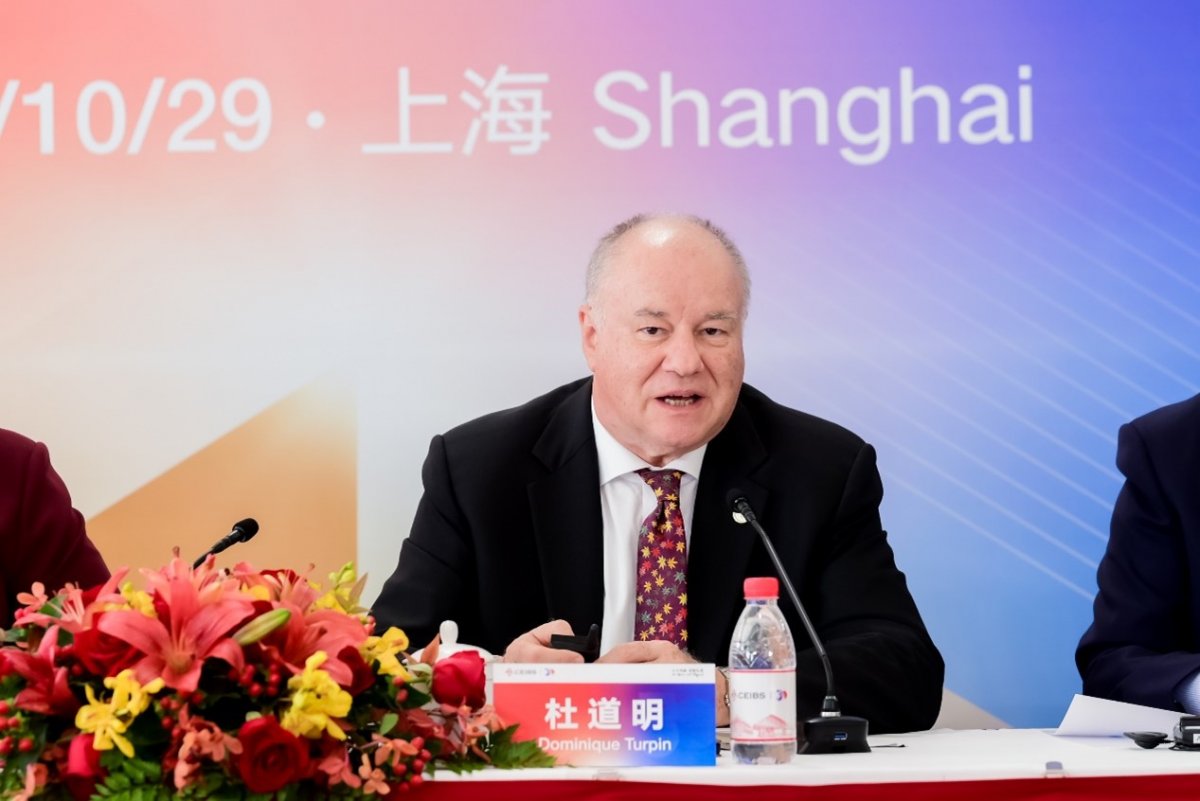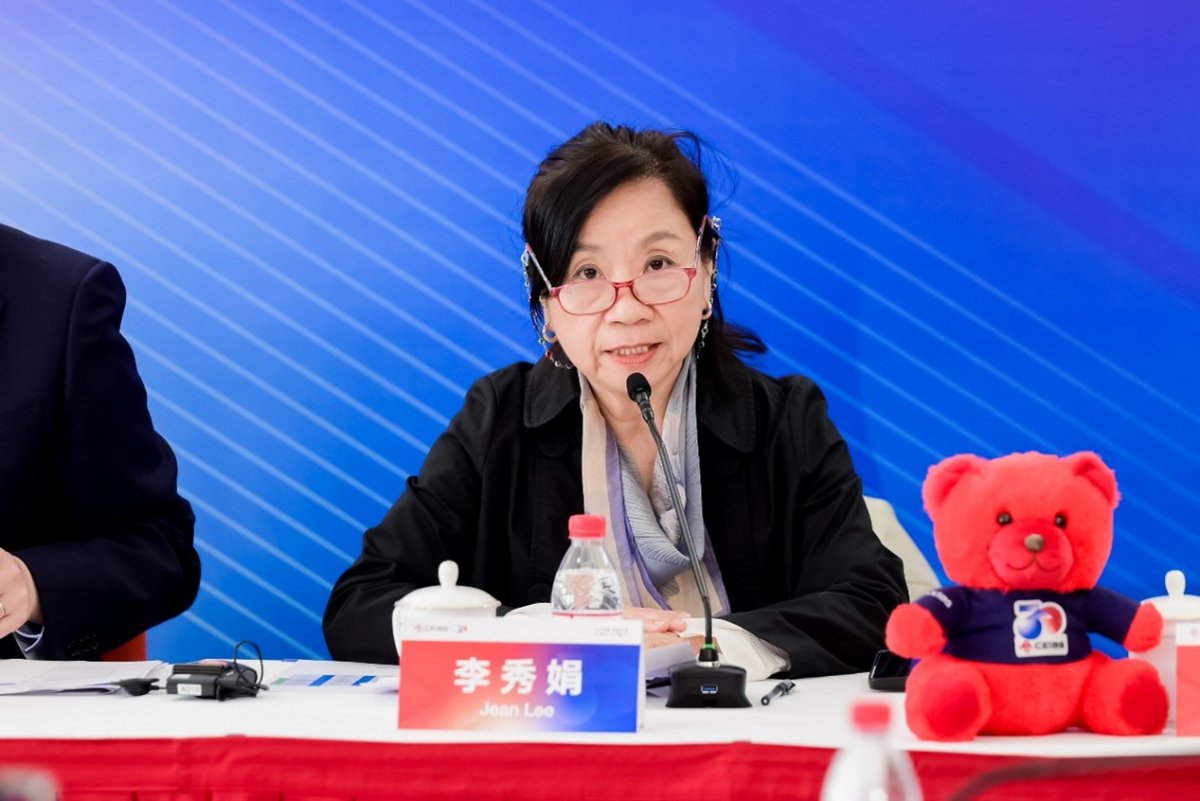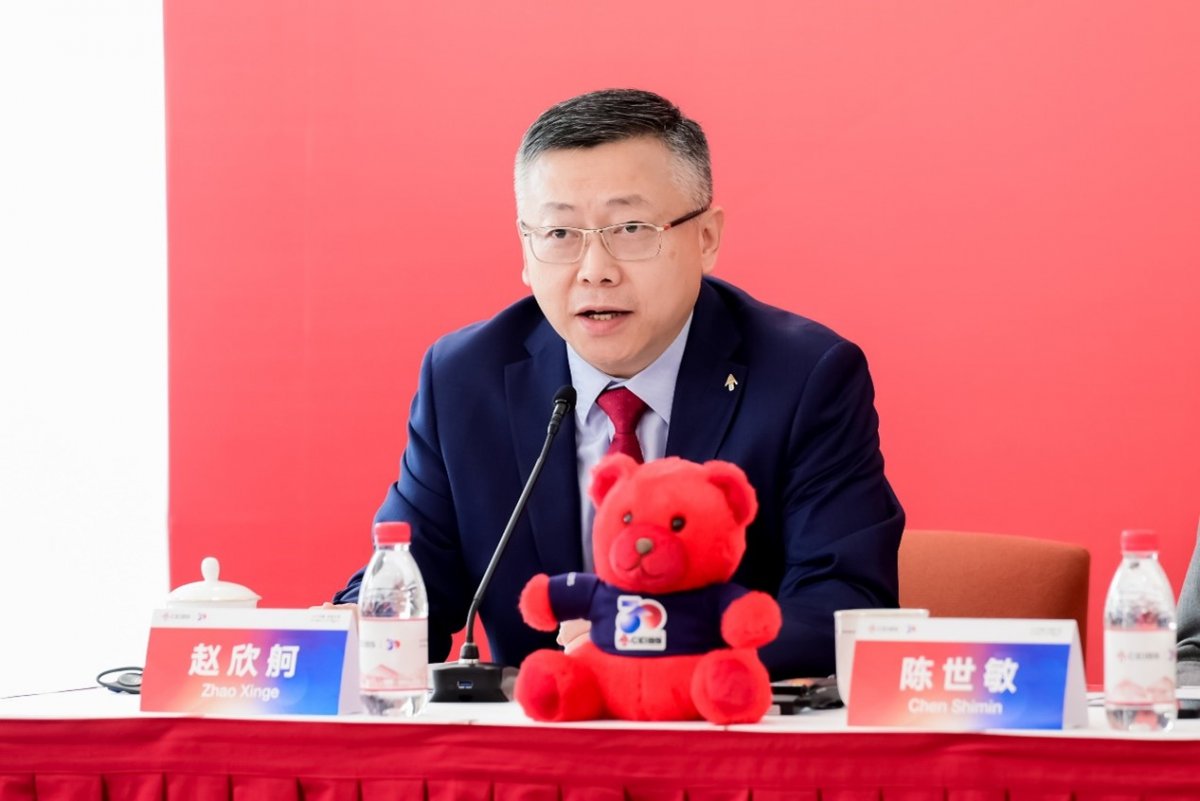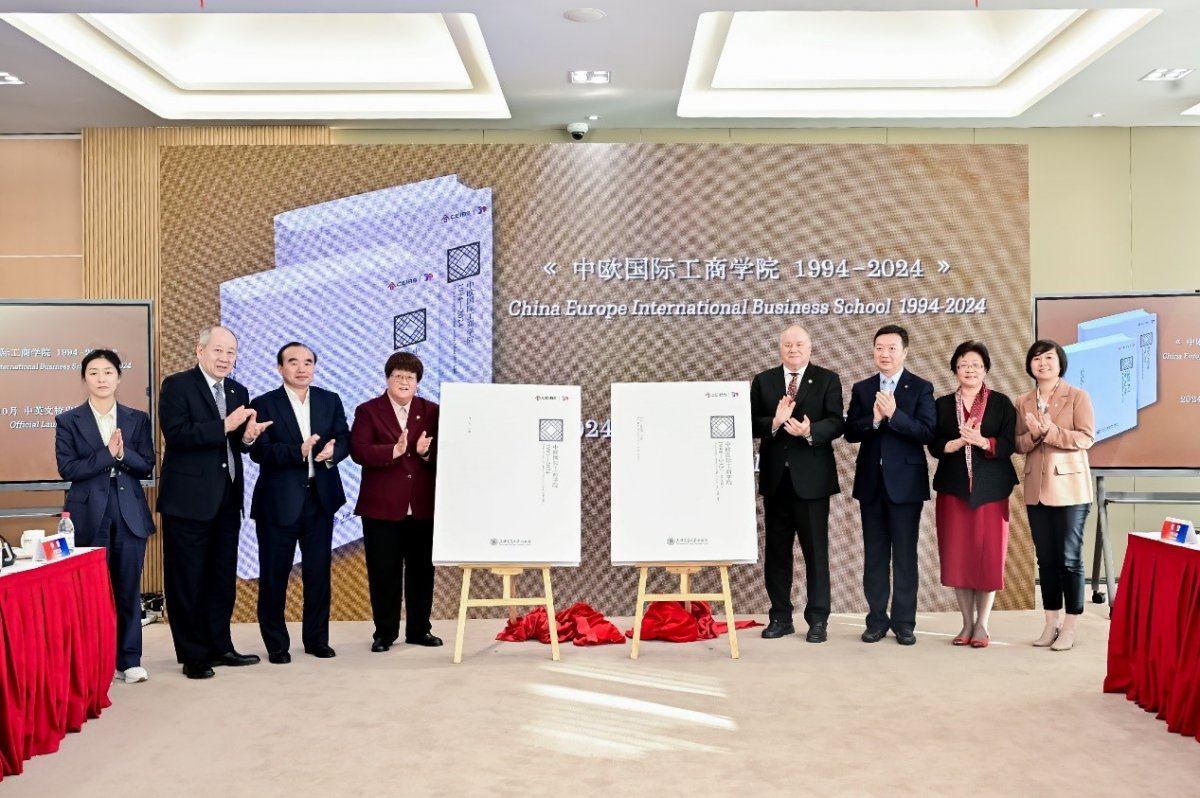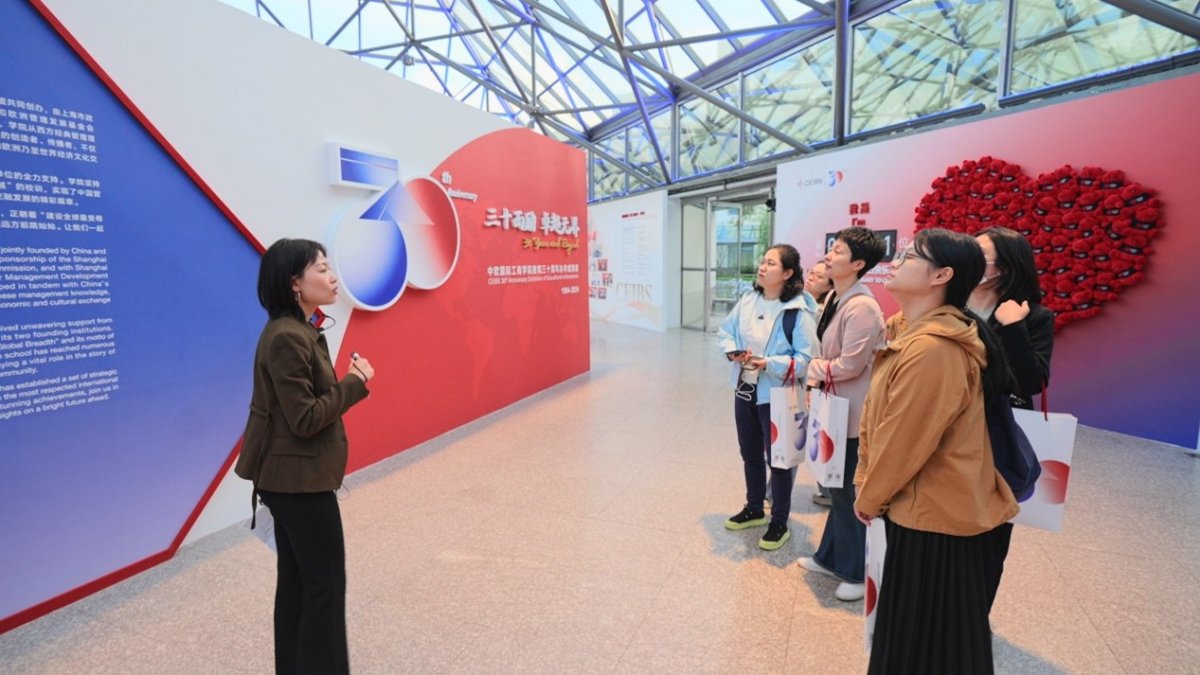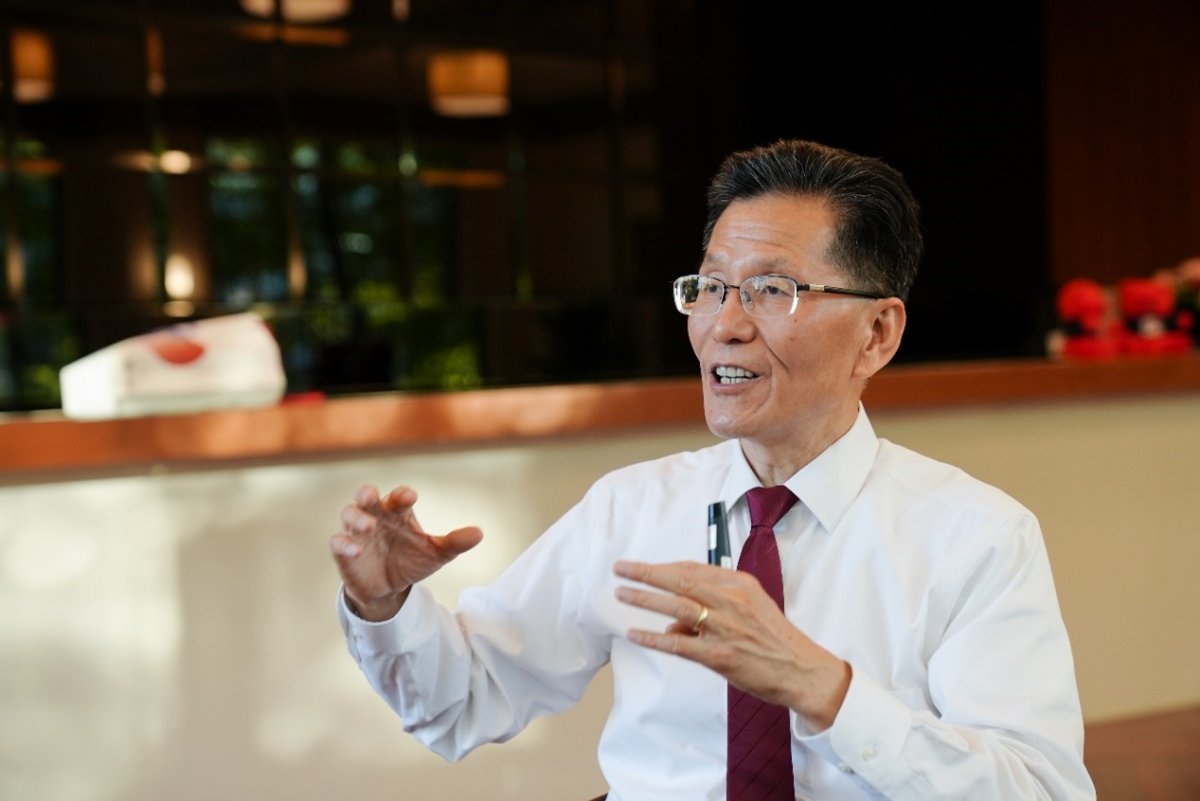CEIBS hosts 30th Anniversary Media Briefing
October 29, 2024. Shanghai – A media briefing celebrating the 30th anniversary of CEIBS was held today on the CEIBS Shanghai campus, with nearly 50 leading media outlets from China and around the world in attendance, including Poets & Quants, Reuters, Les Echos, Handelsblatt, South China Morning Post, Shanghai Daily, China Daily, Xinhua News Agency, People's Daily, Economic Observer, and more.
This event marked not just a moment to reflect on CEIBS’ past successes but also a chance to lay out an inspiring vision for its next chapter, as the school continues to set the bar for global management education that bridges China and the world.
Co-founded by the Chinese government and European Union in 1994, CEIBS is China’s only business school to originate from government-level collaboration. Born in an era during which China urgently needed management talent and sought to learn from global management practices, CEIBS has achieved remarkable success over the past three decades thanks to the efforts of generations of CEIBS faculty, students, and staff, all of whom have demonstrated exceptional innovation and perseverance. From an interpreter of Western management theory to a creator and disseminator of Chinese management knowledge in an era of globalisation, CEIBS has boldly carved out a path of internationalisation rooted in China and reaching across the globe, firmly establishing itself among the world’s top business schools and becoming a prominent Chinese brand in global management education.
In his opening remarks, CEIBS Vice President and Co-Dean Zhang Weijiong extended a warm welcome and heartfelt thanks to distinguished guests and media. Reflecting on CEIBS’ journey over the past 30 years, he emphasised that CEIBS has remained committed to nurturing business leaders with a global vision to drive economic and social development. With a pioneering spirit, it has continuously advanced innovation in China’s management education, building bridges between China, Europe and the world through international cooperation. These achievements are a testament to the success of China’s reform and opening-up, the ever-growing demand for business talent, and the steadfast support of the Chinese government, the EU, and the school’s executive partners.
Prof. Zhang further recognised the media’s essential role in shaping CEIBS’ brand and reputation, adding that CEIBS has established extensive relationships with over 300 major media outlets in China and abroad, which have helped share CEIBS’ voice across more than 80 countries and regions. Moving forward, he asserted that CEIBS will deepen its work with the media as it strives to create an even brighter future.
CEIBS President Wang Hong then delivered a keynote speech offering a reflection on and comprehensive summary of CEIBS’ extraordinary 30-year journey. She noted that since its establishment, CEIBS has remained committed to educating responsible leaders versed in “China Depth, Global Breadth” in line with its motto of “Conscientiousness, Innovation and Excellence”, recounting that leaders from the Chinese central government and the EU have lauded CEIBS as “a cradle of excellent executives” and “a role model of EU-China co-operation”, respectively. Over the past 30 years, CEIBS has evolved into a world-leading business school and a vital bridge for facilitating economic and cultural exchange between China, Europe and the world. Today, CEIBS brings together over 120 world-class faculty from around the globe and has cultivated a network of over 30,000 accomplished alumni across 91 countries and regions, many of whom lead prominent organisations, driving economic development and advancing business practices globally.
President Wang then further elaborated on CEIBS’ "Eight Strategic Priorities" and their impact on the school’s development. She highlighted that these objectives - reinforcing CEIBS’ top-tier position, expanding CEIBS’ world-class faculty, creating signature research areas, diversifying CEIBS’ programme portfolio, bridging China and Europe, serving regional development strategies, exemplifying ESG education, and empowering CEIBS alumni - have laid a solid foundation for CEIBS' sustained growth in the future. “By implementing our Eight Strategic Priorities, CEIBS has firmly established itself among the world’s leading business schools. Not only have we consistently ranked among top-tier business schools globally, but this year, our Global EMBA programme achieved a further historic breakthrough by being named #1 globally in the 2024 Financial Times EMBA rankings. This achievement showcases CEIBS’ exceptional impact and strong competitiveness on the global stage,” President Wang said.
She then analysed five emerging trends in management education today. First, business schools should cultivate talent with a global vision and a commitment to sustainable development to navigate the uncertainties of globalization; Second, technological advancements are transforming management education, making it essential to connect with smart manufacturing and high-tech industries to combine theory and practice; Third, China’s drive for high-quality economic growth requires strategic support from business schools, and CEIBS has a unique role to play by leveraging its geographic advantages to address regional talent needs; Fourth, intense global competition is pushing business schools to continually innovate; Finally, business schools need to deepen their commitment to ESG practices shifts in economic growth models and the advance of “dual carbon” strategies.
President Wang went on to stress that, faced with transformative changes, CEIBS will focus on five priorities to thrive in today’s dynamic world. First, the school will embrace a global perspective by fostering collaboration between China, Europe, and the world; Second, it will support China’s modernisation with its unique positioning of “China Depth, Global Breadth”; Third, it will advance ESG principles to nurture more socially responsible business leaders; Fourth, it will enhance the integration of academic disciplines with industry, innovation, and talent networks to build a forward-looking business education model; Fifth, it will advance CEIBS’ Eight Strategic Priorities to enhance its reputation and global influence.
Looking ahead, President Wang stated that CEIBS will continue to integrate education, research, and business practice between China and the world, advance knowledge creation and dissemination, drive China’s social and economic progress, and strive to become the world’s most respected international business school in line with its motto of “Conscientiousness, Innovation and Excellence”.
In a keynote speech entitled The Future of Global Management Education, CEIBS President (European) Dominique Turpin then took an in-depth look at the current challenges and potential opportunities facing business schools, shedding light on how they can stay ahead of the curve in a rapidly changing business world. He noted that CEIBS, as a collaborative venture between China and Europe, has thrived for 30 years; far exceeding the typical lifespan of international joint ventures. This lasting success, he said, can be attributed to three key factors: the shared goals between the school’s Chinese and European partners, effective and timely communication with a pragmatic approach, and the school’s unique positioning of "China Depth, Global Breadth."
In response to ongoing transformations in global management education, Prof. Turpin emphasised that CEIBS should continuously adapt to technological advancements to keep pace with new demands on teaching. He further noted that today’s students are highly familiar and skilled in the use of technology, requiring CEIBS to anticipate their needs and adjust course offerings to align with real-world demands. CEIBS is also working, he said, to bridge the gap between academic research and business practice, translating research insights into practical recommendations that hold real value for the corporate world.
“Over the last ten or 15 years, business schools and management education have been drastically changed by the emergence of new technologies,” he said, highlighting five key initiatives for business schools to effectively answer today’s challenges: Rethinking Research Objectives, Establishing Cross-functional Areas of Expertise, Prioritising Impact, Refreshing the Curriculum, and Actively Engaging Stakeholders (students, alumni, faculty, business leaders, and other departments).
Prof. Turpin further emphasised CEIBS’ active role and notable impact in driving these transformative initiatives. He highlighted that CEIBS has not only achieved academic excellence but also, through close industry partnerships, provides students with valuable practical experience and expansive career development opportunities. “Looking ahead, CEIBS will continue to nurture executives with a global perspective and hands-on expertise, contributing CEIBS’ insights to the advancement of the global economy and business management,” he concluded.
The keynote speeches were followed by the launch of CEIBS Think Tank Book Series, including the CEIBS Cutting-Edge Perspectives Series, the CEIBS Case Centre Book Series, and the CEIBS Lujiazui Think Tank Book Series.
As Editor of the CEIBS Cutting-Edge Perspectives Series, CEIBS Professor of Management Jean Lee introduced the book series, which comprises nine volumes consisting of over one million words and spans a broad range of topics including marketing management, service management, ESG (environment, social, and governance), human resources, leadership, and finance. “Cutting-edge, transformative, and entrepreneurial spirit are the three defining features of the collection,” Prof. Lee said.
This was followed by an in-depth analysis of the CEIBS Case Centre Book Series by Editor and CEIBS Professor of Accounting Chen Shimin, who reflected on the growth of the CEIBS Case Centre since its founding in 2001. He noted that case-based teaching is inherently aligned with CEIBS' mission to "educate responsible leaders versed in ‘China Depth, Global Breadth’”. Over the past 20 years, the CEIBS Case Centre has developed over 1,500 case studies that reflect China’s unique business environment, highlighting real-world business practices and capturing the essence of China’s corporate culture, he added, and through partnerships with five of the world’s leading case repositories - including Harvard Business Publishing, Ivey Publishing, and the Case Centre - teaching cases developed by CEIBS researchers have served over 700,000 people in 1,100 schools and institutions across more than 80 countries and regions nationwide.
Prof. Chen added that the newly released series of books, which represents decades of dedication and insight from CEIBS researchers, covers classic CEIBS cases, award-winning international cases, and high-quality teaching cases developed by CEIBS case researchers. The entire series focuses on management issues in the Chinese context and aims to share Chinese experience and support classroom teaching that meets international standards. “We hope that we have not only built an outstanding business school within 30 years, but also documented an era through our case studies - 30 years of CEIBS, and 30 years of China,” Prof. Chen said.
Next, CEIBS Professor of Finance and Accounting and Editor of the CEIBS Lujiazui Think Tank Book Series Zhao Xinge elaborated on the development of the CEIBS Lujiazui Institute of International Finance (CLIIF). As a leading think tank supporting the development of Shanghai as an international financial centre, CLIIF has made significant contributions to the opening and development of Shanghai's finance industry by actively tracking and studying global financial markets along with the latest issues in Shanghai's financial landscape over the past 17 years.
The recently released book series, comprising five volumes, spans key areas of financial research, including financial openness, innovation, risk regulation, regional economic development, asset management, sustainable finance, and high-quality development of capital markets. As a collective innovation based on the institute’s knowledge and ongoing research efforts, it is also a tribute to CEIBS' 30 years of excellence in education and to the transformative effects of Shanghai's emergence as an international financial centre.
The event also featured the launch of a new CEIBS history book, entitled China Europe International Business School 1994–2024. Based on previous 15th and 20th-anniversary editions, the book is now being published in English for the first time. The Chinese version contains a total of more than 610,000 characters, and the English version over one million words, both featuring 454 unique photographs that capture precious historical moments in the CEIBS story.
This was followed by an interactive Q&A session during which President Wang Hong, President (European) Dominique Turpin, Vice President and Co-dean Zhang Weijiong, and CPC Secretary Ma Lei took questions from various media outlets on topics including educational innovation, talent development, and international collaboration.
In addition, an exhibition entitled CEIBS’ 30th Anniversary Exhibition of Educational Achievements was officially unveiled during the event. Featuring a rich variety of displays, including illustrated panels, valuable historical documents and artifacts, videos, and interactive installations, the exhibition offers visitors a comprehensive experience of CEIBS' remarkable 30-year journey and its many achievements along the way.
On the sidelines of the event, CEIBS Professor of Economics, Santander Chair in Economics and Associate Dean (EMBA) Zhu Tian hosted a Media Salon with selected international journalists representing leading media outlets from multiple countries and regions, including France, Germany, the US, and Hong Kong, on the topic of China’s Economic Outlook. The salon offered a glimpse of the quality of the school’s distinguished international faculty team and provided valuable insights on the current macroeconomics trends shaping China’s economic landscape.
Beginning with a popular analysis of China’s economy by Paul Krugman, which broadly prescribes greater consumer spending as a remedy for China’s relatively sluggish recent economic performance, Prof. Zhu posed a number of counter intuitive questions about China’s economic model, questioning whether it is really driven by investment, exports, and a large trade surplus, whether China’s technological progress is really slowing down, whether the Chinese government really does not want to increase consumption, and whether China really has only focused on production and investment rather than consumption in recent years. Using rich statistical data, he argued that in most cases, the answers are more complicated than those typically presented in articles like Krugman’s, and aimed to debunk its diagnosis of China's current economic state.
Prof. Zhu argued that rather than consumption, much of China’s stellar economic growth over recent decades is down to three key drivers: investment (accumulation of physical capital, education (accumulation of human capital, and technological progress (accumulation of technologies). As such, he concluded by offering a two-pronged strategy for tackling some of China’s current economic woes: launching substantive reform measures to reassure private and foreign businesses about China’s commitment to market reform and openness, and the use of strong fiscal and monetary policies like issuing of government bonds and quantitative easing to resolve debt and liquidity issues in the real estate and local government sectors.
After the press conference, Presidents Wang Hong and Dominique Turpin sat down for in-depth interviews with a number of media outlets to discuss CEIBS’ future development.







